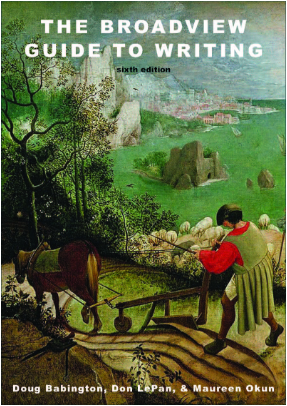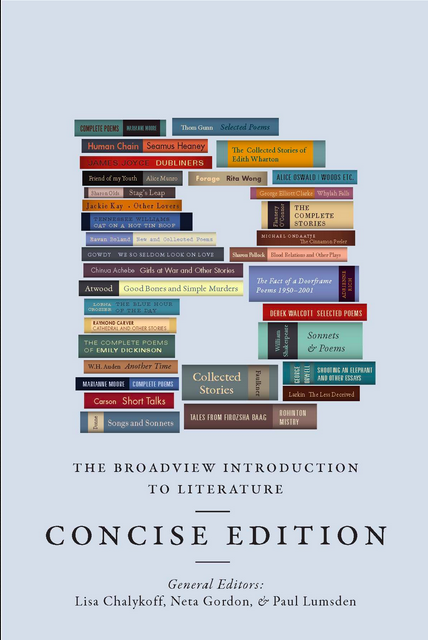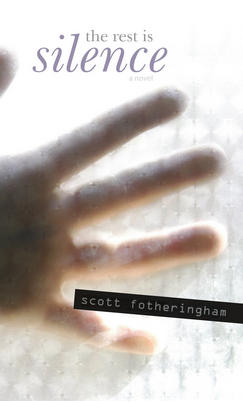COURSE DESCRIPTION
One of my primary goals in teaching Section A0 of English 1406 is to encourage students to think for themselves. In brief, I want you to question authority. Learn to be sceptical without being cynical, to challenge what others think and say without being obnoxious or overly aggressive, to stand up for what you believe but only insofar as you can justify your beliefs rationally.
My other primary goal is to get students to develop the mental practice of putting themselves into the position of others. As they say, to learn to walk a mile in someone else's shoes.
There is nothing like the study of literature for accomplishing these two goals.
Finally, but also of great importance, we will work on improving your reading and your writing. To improve your writing you need to read. Anyone who says different is selling something. There is no short cut. Writing is a practice, and as such it demands that you do it but also that you observe and pay close attention to others who do it well. To that end, during the year we will read three novels, a couple of plays, some short stories, some poetry, and we will read and engage with a writing handbook.
REQUIREMENTS
An extremely important requirement is to HAVE A COPY OF EACH OF THE COURSE TEXTS.
This is an English class: the texts are central to the opportunities for learning.
If for any reason you won't be able to bring a copy of the appropriate text to class with you every day: get out now. To paraphrase John Kennedy: 'ask not what this class can do for you, ask what you can do for this class.' If you are not willing to contribute to our collective understanding of what we read, then you're a parasite and your course grade will reflect it; if you are not able to contribute to our collective understanding of what we read, then you'll be better off studying something else with a different professor.
The second most important requirement is to attend class every day (cf. the Kennedy paraphrase, above). I know very few of us will be able to attend every single class --shit happens, we get sick, we just need that extra hour to finish up an assignment for another class-- but there are thirty classes scheduled for the fall term; so f you miss three classes, you will miss ten percent of the term. Ten percent. Compare that with your grade. Imagine you were earn a grade of 75%; that's an B. Now imagine I reduce that grade by only 10%; your B just became a C. Ten percent is both not that much and a heck of a lot. Therefore, I think that if you miss more than three classes, you'll miss more than ten percent of the term, and that's too much. So plan to be here, with the right text, every day.
You will be required to write four papers for this course. The first one will be a paper in which you explicate a sonnet. The second paper will invite you to do some research, then apply that research to Timothy Findley's Not Wanted on the Voyage. Your third paper will be a literary analysis of . . . And for your fourth paper you will . . .
The final requirement will be a final exam.
Babington, Doug, Don LePan, & Maureen Okun, Eds. The Broadview Guide to Writing. Sixth Edition.. Peterborough: Broadview Press, 2015.
Chalykoff, Lisa, Neta Gordon & Paul Lumsden, Eds. The Broadview Introduction to Literature, Concise Edition.. Peterborough: Broadview Press, 2015.
Fallada, Hans. Every Man Dies Alone. Trans. Michael Hoffmann. London: Melville House, 2009.
Findlay, Timothy. Not Wanted on the Voyage. Markham, ON: Penguin Books, 1984. Rep't. 2006.
Fotheringham, Scott. The Rest is Silence. Fredericton, NB: Goose Lane Editions, 2012.
GRADES
Attendance and Participation - - - 25%
First Paper - - - - - - - - - - - - - - - - 10%
Second Paper - - - - - - - - - - - - - - 15%
Third Paper - - - - - - - - - - - - - - - 15%
Fourth Paper - - - - - - - - - - - - - - 20%
Final Exam - - - - - - - - - - - - - - - - 15%
DISABILITY STATEMENT:
If you are a student with a documented disability who anticipates needing supports or accommodations, please contact Dr. Abu Kamara, Coordinator, Accessible Learning Services at 902-585-1291, abu.kamara@acadiau.ca or Kathy O’Rourke, Disability Resource Facilitator at 902-585-1823, disability.access@acadiau.ca. Accessible Learning Services is located in Rhodes Hall.
PLAGIARISM STATEMENT:
The professor will provide at least a partial explanation of what plagiarism is within the first week of class. Whether a student commits plagiarism accidentally or intentionally, s/he runs a very real risk of being graded F, 0% for the course, and being reported to the Acadia Registrar. Any potential gain a student might perceive in plagiarism is wholly counter balanced by the price to be paid. DO NOT PLAGIARISE. It's like driving drunk; you might get home without killing someone, but is that a risk worth taking?
LINKS with which to be familiar
Acadia's Vaughan Library
The OED. (This one will work automatically only from on campus.)
This list will grow as the year unfolds. If you become aware of something you think could benefit th rest of us, please let the professor know so he can post it here.





